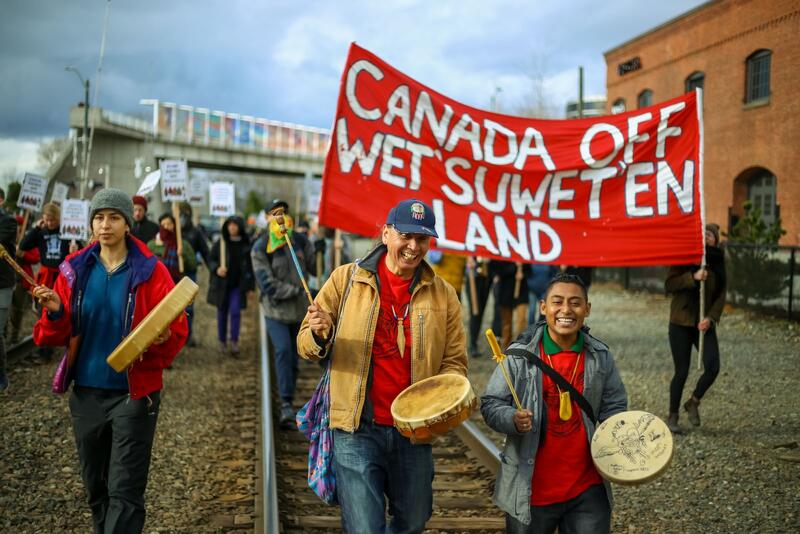
This coming Monday, October 12, is Indigenous People’s Day, and in honor of this, we wanted to highlight a couple of the many issues going on regarding Indigenous peoples and environmental protection .
Since 2014, the Wetʼsuwetʼen hereditary chiefs of British Columbia have been fighting the construction of the 460 mile-long Coastal GasLink pipeline (a project of TC Energy), which will go directly through their tribal lands. Their objections are cultural as well as environmental, citing concerns such as impact on water and air quality, wildlife, fracking, and the preservation of cultural traditions and TEK (traditional ecological knowledge).
Protests against the pipeline broke out across Canada earlier this year, including extensive train blockades that caused massive disruption to the Canadian railway system in February. Hundreds of thousands have signed petitions urging TC Energy's backers–such as JP Morgan Chase, Bank of America, and Citibank–to withdraw their funding for the project.
The issue is complicated by disagreement within the Native American community on the subject. Wet’suwet’en hereditary chiefs are fighting the pipeline, yet many elected First Nations councils have given their support to the project, highlighting the additional issue around these legal battles of the conflict between the different forms of indigeous governance structures and which the national government chooses to recognize when they disagree. The Wet’suwet’en leaders are fighting it on the basis of a 1997 ruling which upheld that the land was theirs, as they had never signed a treaty to cede it.
TC Energy began construction of the pipeline in 2019, and some of the fears of the hereditary leaders are already coming to pass. This spring, it was found that the company was not adhering to their own wetland management plan to protect the 42 wetland sites that will be impacted by the pipeline. Two noncompliance orders were issued by the government, which temporarily stopped land clearing and construction in those areas. The Wet’suwet’en's requests that construction be halted due to the worldwide pandemic have also gone unheeded.
For the Wetʼsuwetʼen, this comes after years of fighting the Enbridge Northern Gateway pipeline, which was eventually rejected by Prime Minister Pierre Trudeau in 2016. For more on that issue, see the “Your Voice, Our Future” video on our Indigenous Multimedia page.
For updated information on the fight against the pipeline and to learn how you can stand in solidarity with the Wet’suwet’en hereditary leaders, go to the Unist'ot'en website (Big Frog Clan of the Wet’suwet’en).
Stay tuned for another Indigenous engaged project feature on the blog next Thursday. You can also find links to many more Indigenous engaged projects here.
Header image: Protesters block a freight and passenger rail line through Seattle as they support the
Wetʼsuwetʼen First People in their protest of the Coastal GasLink natural gas pipeline.
Photo credit: Joseph Gruber/shutterstock.com